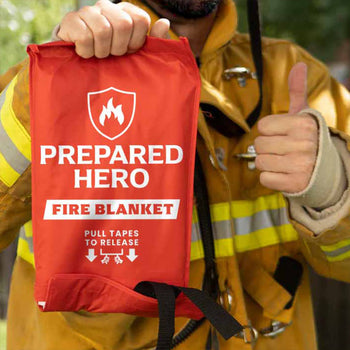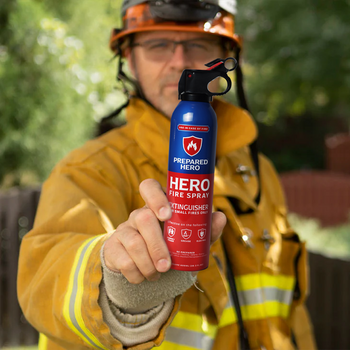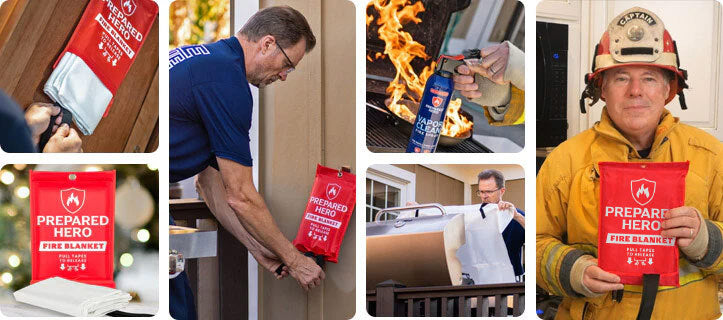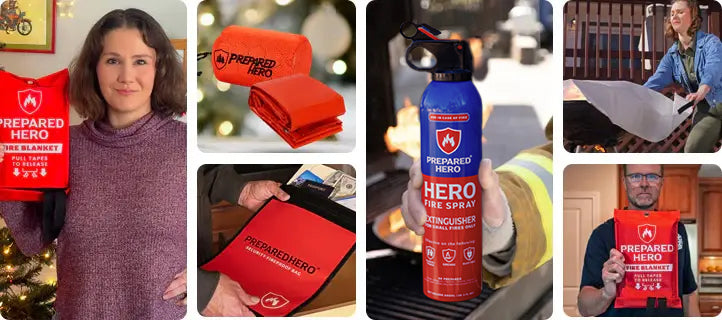Where you put your smoke detectors matters just as much as installing them. Proper placement makes sure they can detect...
Home fires are more common than you think and can happen when you least expect it. In fact, the National Fire Protection Association (NFPA) states that fire departments respond to a fire every 21 seconds.
Why take those chances? Even though you can’t predict when a home fire will occur, you can do something to help prevent it. This article will answer the question: what are three things you can do to prevent a fire from occurring in your home?
1. Keep Flammable Items Away from Heat Sources

The first thing you can do to prevent a fire from occurring in your home is to keep flammable items away from heat sources.
Flammable items like paper, plastic, and cloth can easily catch fire, so you should keep them away from heat sources like space heaters, candles, stoves, and toasters. Doing this helps reduce the risks and hazards associated with fire. Even small items like dish towels, newspapers, or cleaning rags can quickly ignite if they get close to something hot. Creating a safe distance between heat sources and flammable items greatly reduces the risk of fires.
This simple precaution is especially important in high-risk areas like the kitchen and garage. Regularly check for items that might have been left close to heat sources and understand how clutter contributes to fire risks. Taking a few moments to organize and secure your space can go a long way in preventing fire emergencies. It’s a small effort that makes a huge difference in keeping your home and family safe.
Understanding Flammable Items
Flammable items refer to anything that can quickly catch fire. You might be surprised to know that many everyday items are flammable. Think about it: how often do you leave a stack of newspaper on your kitchen counter? How about that lint in your dryer’s filter? These things might seem harmless, but they can start a fire.
Here's a list of common flammable items around the house:
- Paper: newspapers, magazines, napkins, paper towels, books
- Cloth: towels, dishcloths, clothing, curtains, bedding
- Plastic: containers, bags, wrappers, toys
- Cardboard: boxes, packaging, shipping materials
- Wood: furniture, shelves, flooring, decor, firewood
- Lint: in the dryer, around vents, or in the laundry room
- Cleaning supplies: rags, sponges, wipes
- Oils: vegetable oil, motor oil, oil paint
- Aerosol cans: spray cleaners, deodorant, hairspray
- Batteries: damaged, overheated, or overcharged ones
- Lighters: matches, candles
- Gasoline: in garages, garden tools, or vehicle storage
- Electrical equipment: frayed cords, exposed wires, malfunctioning appliances
Safe Storage Practices
Knowing how to store flammable items is just as important as identifying them. Start by placing any flammable item at least three feet away from heat sources. This means putting away paper towels, cleaning rags, and wooden utensils away from your stove and oven. The same thing applies to newspapers and magazines placed near your fireplace or space heater.
Do this when you’re cooking, too. Don’t let anything pile around the stove, especially boxes and plastic. Clutter can easily ignite if it gets too hot. Cooking can get hectic, and before you know it, that box of flour is burning. This is why it’s important to keep a fire blanket or fire spray in your kitchen.
Educating Family Members

There’s no point learning about flammable items if you’re the only one who knows about them. Everyone in your household should know about fire safety. Talk to your family about the importance of keeping flammable items away from heat sources. You could do fire drills at home and do family activities to make fire safety fun for kids. Children are naturally curious, so involving them reduces the risk of fires. Think about those clips of kids playing with fire on the internet. Not a safe sight, right?
You should also involve the elderly when talking about fire safety. Like children, they’re the most vulnerable during fire emergencies. Teaching them about fire safety, like how to use a fire blanket or use a fire spray, helps them deal with small fires even when no one’s around to help.
Regular Check-Ins
You should also do regular check-ins around your home. Go around your house regularly to look for any flammable item that’s been moved too close to a heat source. This could become a little ritual for your family and remind them of fire safety.
Having a checklist of areas that need to be checked with the corresponding flammable items also helps. For instance, pay special attention to the kitchen, where grease can build up and ignite.
Then, create guidelines on how to deal with these areas. For example, you should keep blankets and pillows away from the fireplace in your living room. It’s easy to forget that they can catch fire if placed close to a heat source. You should also store your clothes and linens away from radiators and heaters. You might think it’s convenient to toss that sweater on top of the heater, but it’s a fire hazard waiting to ignite.
2. Avoid Clutter in Cooking Areas

The second thing you can do to prevent a fire from occurring in your home is to avoid clutter in cooking areas.
A clean and organized cooking area makes cooking more enjoyable and safe. Since cooking is the top cause of home fires, being careful when making a meal decreases the risk of fire.
Plus, it’s normal for many to pile up cooking tools and food while cooking. This misconception makes cooking a bigger fire risk. Imagine treating clutter as normal, leaving your cooking unattended for a minute, and coming back to a burning kitchen.
Grease fires mostly start in kitchens and are more dangerous than regular solid combustible fires. Also known as Class K fires, they’re more risky because of another misconception: water can put them out. Water makes them worse because it makes oil splatter and, in worse cases, explode. Hence, you have to be more careful when cooking with oil. This might be a simple precaution, but decluttering could mean the difference between a small kitchen fire and a burned house.
Risks Associated with Clutter
Your kitchen poses the highest fire risk in your house, and clutter makes things worse. If your countertop overflows with paper towels, old takeout containers, or cooking supplies, you’re in for a fire treat. And when things become more messy, you probably won’t notice a small fire starting. For instance, a fire started beside your stove. The clutter around it might obstruct your view, leaving the small fire unnoticed. The next thing you know, the fire has consumed your kitchen.
In addition, unattended cooking is the leading cause of kitchen fires. Clutter can take your focus away from what you’re cooking, so don’t let it put you in danger. Make sure to clean your kitchen before and after you cook, and avoid piling things up as you cook. Remember, it’s easier to focus on what you’re doing when you have a clean space.
Lastly, a messy kitchen can make the fire spread faster. For instance, the fire started because of the grease buildup on your stove. If there are many things beside your stove, the fire can spread faster, giving you less time to respond or call the authorities for help. A small fire can turn into a major disaster in 30 seconds, so you must act fast.
Decluttering Strategies
So, how do you deal with clutter? Start by doing a quick kitchen cleanup. Depending on your schedule, you can do this daily or weekly (we suggest daily). Set aside time to clear your countertops and put away any stray items. If you have cooking tools you rarely use, store them in a cabinet until you need them.
Creating a system for organizing your cooking supplies also helps. For instance, you can use clear bins to store similar items together. One bin can hold spices, while the other can hold aromatics. If you don’t want to use bins, you can use drawers or cabinets. Just make sure everything has a designated place so you can easily grab what you need without cluttering your kitchen.
If you notice some items you haven’t used in the past year, it might be time to give them up. Get rid of anything that doesn’t spark joy, and you’ll be surprised at how much space you can free up.
Cooking Safety Tips

While you’re at it, think about your kitchen fire safety kit. Do you have a mess-free fire blanket for grease fires? How about a non-toxic fire spray? Did you check your kitchen fire extinguisher to make sure it’s not expired? Are your fire protection gloves ready for when you have to touch hot stuff? Having a complete fire kit lets you prevent a small fire from escalating.
Never leave your kitchen unattended when cooking. As mentioned, unattended cooking is the top cause of kitchen fires, so don’t take your chances. Even if you’re doing simple tasks like boiling water, it pays to pay attention. If you have to leave the kitchen, ask someone else to watch what you’re cooking. Otherwise, turn off the heat.
In addition, try to use the back burners whenever possible. Doing this prevents accidental spills and keeps children away from the handles. Imagine your kids spilling scalding oil on themselves because they’re curious about what you’re cooking.
3. Regularly Check Electrical Appliances
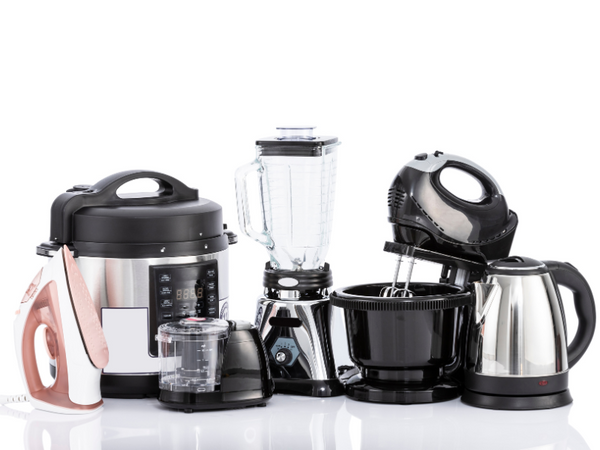
The last thing you can do to prevent a fire from occurring in your home is regularly checking electrical appliances.
Electrical safety is directly tied to fire safety. It’s something you can’t just skip. Think about the frayed wires and malfunctioning breakers waiting to ignite. Like grease fires, electrical fires are dangerous because you can’t use water to put them out. You see, water conducts electricity, so you can’t use water fire extinguishers to put out electrical fires.
Electrical fires can also hide behind ceilings and walls. For instance, you live in an old house with old wiring. Not regularly checking your electrical systems makes you blind to this danger. The next thing you know, a fire is starting behind your wall or ceiling without any warning.
Best Practices for Appliance Use
A good rule of thumb is to unplug any electrical appliances you’re not using, especially those that generate heat. These include toasters, irons, and space heaters. When you leave them plugged in, there’s always the risk of overheating or short-circuiting.
Make it a habit to check your appliances. Do they feel too hot to the touch when you’re using them? Are there any frayed cords? How about the outlets you plug them into? Do they show any signs of damage, such as scorched spots and discoloration?
If you notice any signs of damage, it’s time to repair or replace that appliance. Remember, appliances are subject to wear and tear, so make it a habit to check them. You wouldn’t drive a car with bad brakes, so why would you use a malfunctioning appliance that could cause a fire?
Signs of Electrical Problems
There are common signs that something might be wrong with your appliances. For one, your appliances making strange noises could mean they’re malfunctioning. Flickering lights and a burning smell coming from your appliance are also signs that it’s overheating or its wires are damaged. You might also notice that certain appliances suddenly stop working or have less power than before—like a vacuum cleaner that loses suction or a fan that barely blows air. Another red flag is the frequent tripping of circuit breakers when you use appliances. This could indicate an overload or a short circuit.
Keep an eye out for these signs. Ignoring them can lead to bigger issues down the line, like electrical fires or expensive repairs. Appliances that don’t work properly also use more energy and drive up your bills. Plus, many electrical problems get worse over time, so catching them early prevents dangerous situations from happening. Staying alert to these warning signs and getting things checked out when you notice something off can help keep your home safe and your appliances running smoothly.
What to Do With Appliance Issues
If something doesn’t seem right with an appliance, don’t ignore it. Take action right away. Even if it’s a small issue, ask a certified electrician to take a look. If there’s one thing you shouldn’t DIY, it’s electrical repairs. Remember, it’s better to spend a few bucks than face an electrical fire.
Keep a maintenance log for your appliances as well. This helps you track when you last checked each appliance and when repairs were made (if any). You can record it on a notebook or your phone—whatever works.
Conclusion
Keeping flammable items away from heat sources, avoiding clutter in cooking areas, and regularly checking electrical appliances help prevent fires from occurring in your home.
Fire safety doesn’t have to be complicated. You can keep your home and loved ones safe with some proactive measures. These steps may seem small, but they can make a big difference in protecting what matters to you. So, take a moment to implement these tips today, and check out reliable fire prevention tools here. Stay prepared, hero!


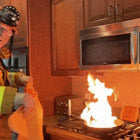 Fire
Fire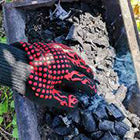 Safety
Safety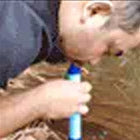 Survival
Survival Protection
Protection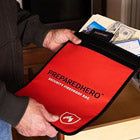 New
New
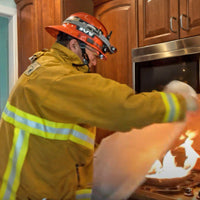 Fire
Fire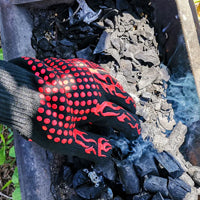 Safety
Safety Survival
Survival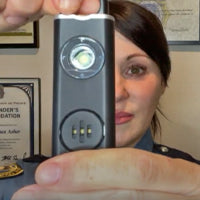 Protection
Protection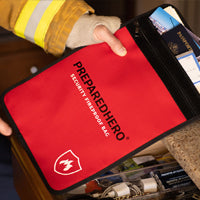 New
New
